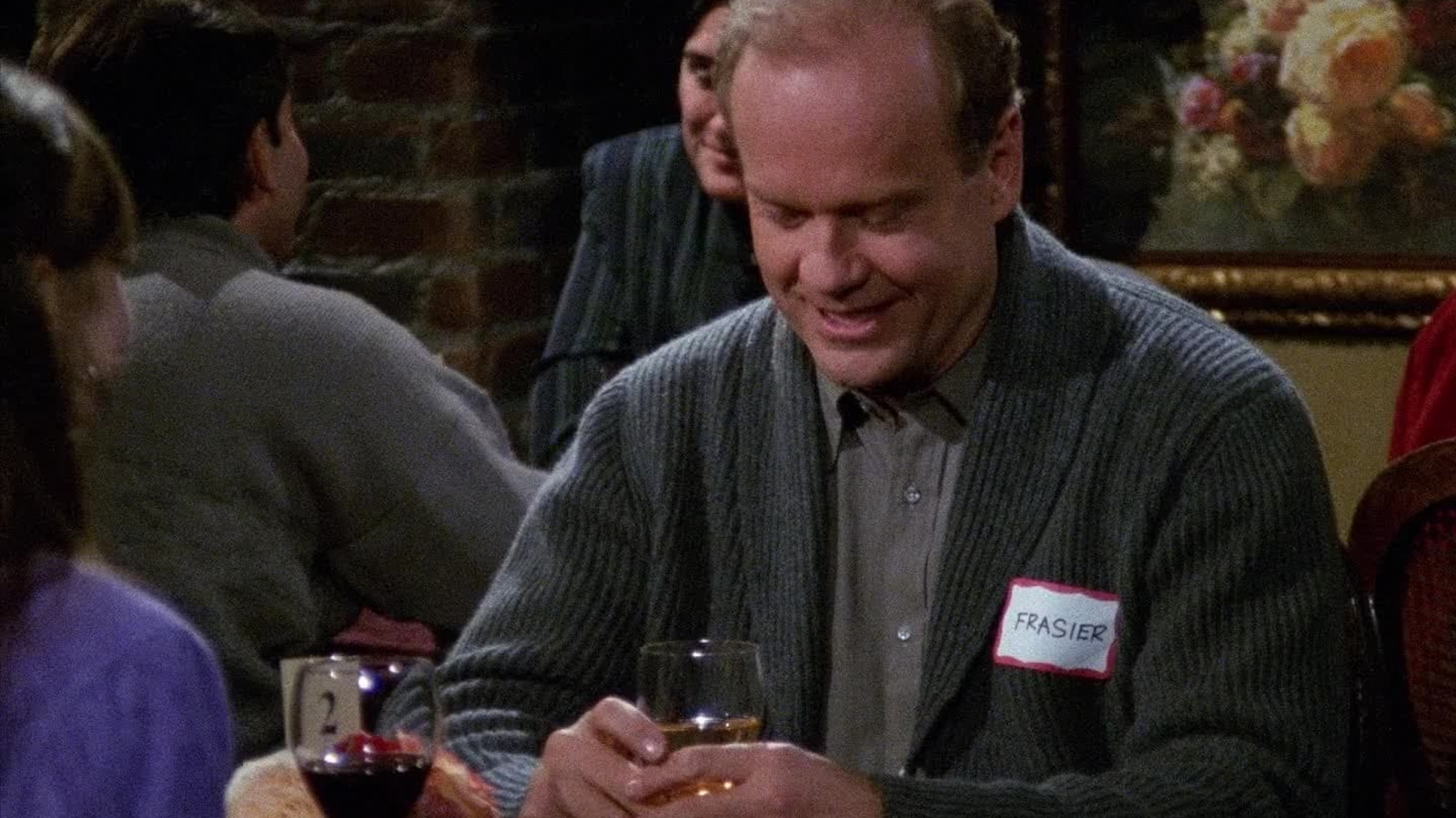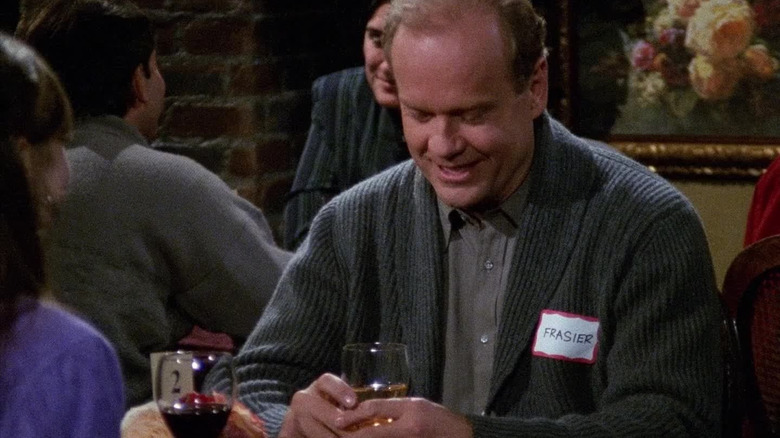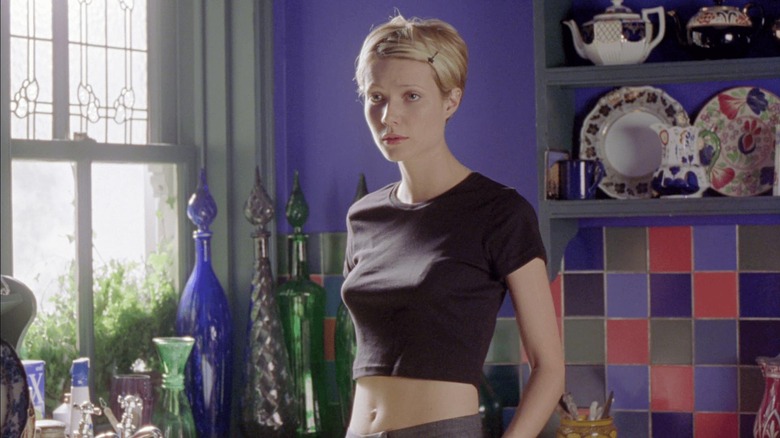When one thinks of "experimental, groundbreaking television," they probably don't jump straight to the sitcom "Frasier," itself a spin-off of the Boston workplace sitcom "Cheers." However, they would be wrong, as "Frasier" was considerably more subversive than modern audiences give it credit for, with writers aiming to create the "anti-'Seinfeld'". The show spun sitcom tropes at every opportunity, eschewing musical cues and establishing shots that became part of the sitcom's audiovisual language, and in one particularly adventurous episode, even toyed with the idea of multiple timelines.
Although it wouldn't go as far as introducing the concept of the multiverse à la the "Community" episode "Remedial Chaos Theory", "Frasier" season 8 episode "Sliding Frasiers" showed the audience how the smallest changes can completely change the course of an evening. Mental health specialist and radio host Frasier Crane (Kelsey Grammer) tries to decide whether to wear a suit or a sweater to a speed dating event, noting that the decision can have a huge impact and we get to see how his different decisions could play out . There's a sweater timeline and a suit timeline, each with their own implications for his love life, and it's honestly pretty fun. It's also inspired by an underrated 1990s rom-com starring Gwyneth Paltrow called Sliding Doors.
Sliding Frasiers is inspired by Peter Howitt's Sliding Doors
In the episode, Frasier's night goes quite differently based on whether he wears the sweater or the suit, and we see the outcomes of both, much like the conceit at the center of Peter Howitt's 1998 indie romantic comedy Sliding Doors. In "Sliding Doors," the deciding factor is whether or not the newly fired Helen (Paltrow) catches the train home, rather than a fashion decision that changes everything, but it also follows a dual-story format. Sliding Doors is one of the best romantic comedies of the 1990s and turns rom-com tropes on their head just as "Frasier" subverts those of the sitcom format. Basically, it's a match made in subversive comedy heaven, and in both cases the unusual narrative framework is paired with pitch-perfect lead performances.
What's interesting about Sliding Doors and Sliding Frasiers is that there aren't really any "happy" endings and both put their protagonists through some pretty awful situations no matter which timeline is followed. The idea that such wildly different lives from small decisions could still end up in a similar place is more than a little nihilistic, but it was The 90s. Since then, several other shows have done their own riffs on Sliding Doors, from Doctor Who to The Unbreakable Kimmy Schmidt, each with their own spin on the split story formula.
Few sitcoms have exploited the central conceit of Sliding Doors
In the hilarious fourth season of the Comedy Central sitcom "Broad City," New York's besties Abby (Abby Jacobson) and Ilana (Ilana Glazer) have their own version of "Sliding Doors" with an episode called, well, "Sliding Doors." " The episode shows when the two met while waiting on the subway and how their lives would change depending on how the day progressed. Like the movie and the episode "Frasier", it plays with sitcom stereotypes and is a real explosion of a story that it helps show the essential truths of life, but is less of a failure because we know Abby and Ilana are close.
Other shows riffing on "Sliding Doors" include, once again, "The Unbreakable Kimmy Schmidt," in which we see a version of Kimmy's life where she wasn't kidnapped because she didn't want to miss a screening of "Sliding Doors," an episode from "Doctor Who" where companion Donna (Catherine Tate) must decide whether to continue working with the Doctor or not, and even episode of the amazing malcolm in the middle where the strengths and failings of each of Malcolm's parents are detailed when their boys go bowling and only one of them can take them. It seems that no matter how the writers choose to adapt the idea, there are always different and compelling ways to dig into the characters and the storytelling by simply showing the audience what could be. Sliding Doors rules, and so do all these wildly diverse tributes.
Source link



